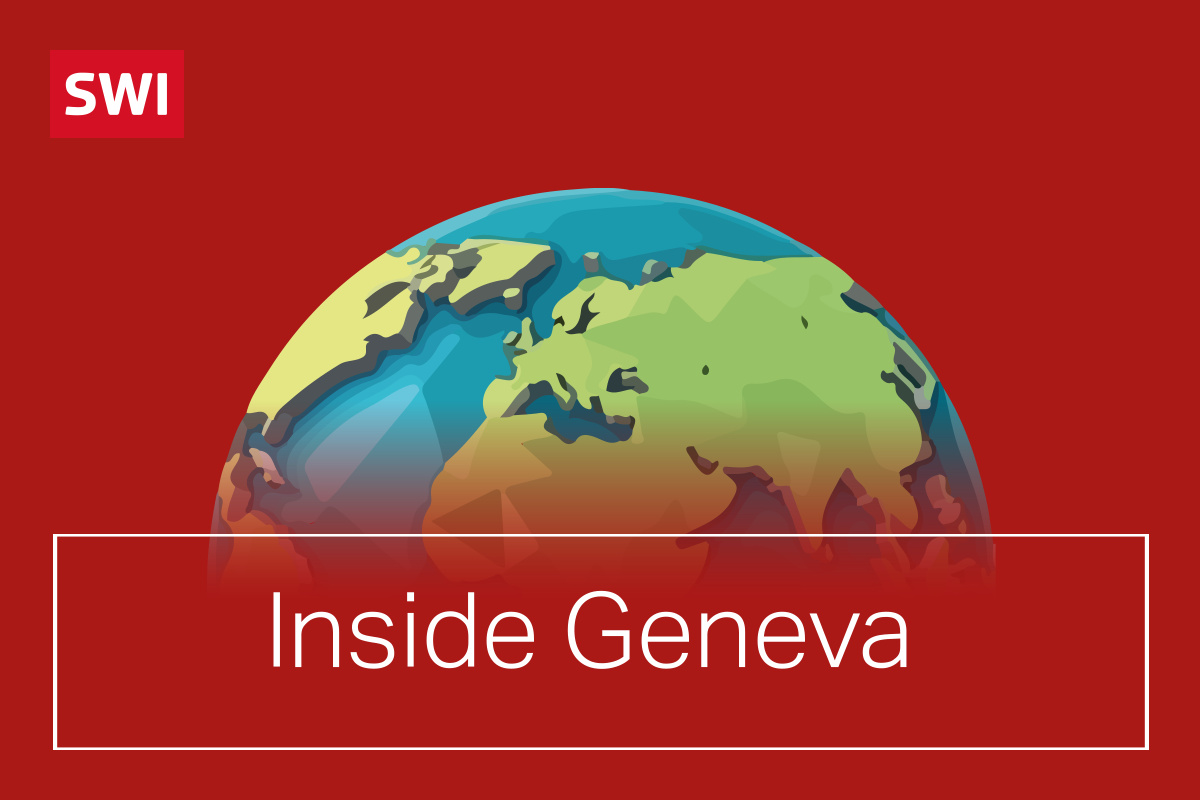
COP26: What do aid agencies want?
As I write this, the United Nations COP26 climate talks have begun in Glasgow, Scotland. Ahead of the conference, world leaders have been under pressure to make cast-iron commitments to reduce CO2 emissions, to become carbon neutral within a couple of decades.
Boris Johnson, the prime minister of conference host Britain, warned that if meaningful action wasn’t taken the world would see mass migrations, water shortages and conflicts, all related to climate change.
From the Geneva perspective, you can’t help feeling that Johnson, and other developed nation leaders who have recently issued similar dire warnings, are coming a little late to this realisation.
Aid agencies have been facing up to the humanitarian consequences of climate change for quite some time now. They are seeing climate-related drought cause more hunger, and excessive rainfall push up malaria infections.
Rising hunger
“Climate change has long become a humanitarian issue,” says Gernot Laganda, chief of Climate and Disaster Risk Reduction Programmes at the World Food Programme (WFP). “Hunger is rising faster than at any previous point since the turn of the century.”
Gernot is my guest on this week’s Inside Geneva podcast, to discuss COP26 from a humanitarian perspective. Joining us too is Andrew Harper, the UN Refugee Agency’s Special Advisor on Climate Action.

More
COP26: Why the climate crisis is also a humanitarian crisis
The fact that two of the world’s biggest aid agencies have senior officials devoted to climate change is an indication of just how seriously humanitarians are taking the climate crisis.
“Ninety percent of the world’s refugees originate from countries that are on the frontlines of the climate emergency,” Harper points out. Eighty percent of the greenhouse gas emissions which are causing climate change come from a handful of economically powerful countries, most of them far from those frontlines he is talking about.
Climate-related conflict
And, if world leaders care to look, the consequences for the most vulnerable regions on the planet are already plain to see. In Africa’s Sahel region temperatures are rising 1.5 times faster than the global average. Intense prolonged drought is leading to conflict over scarce natural resources.
In Yemen, classed by the UN as the world’s worst humanitarian crisis, severe flooding this year added to the misery. In Afghanistan, drought caused harvests to fail, increasing malnutrition levels which were already high.
As Andrew Harper explains on Inside Geneva, climate change is set to make bad crises worse, and create crises where none existed. “Climate is going to make this situation much more desperate for vulnerable populations. And it is leading to increased fragility, violence, conflict, and subsequent displacement,” he says.
“We are collectively driving towards a cliff,” adds Gernot Laganda. “There are many people who have already lost their lives at the bottom of that cliff, in countries that are already two or three degrees warmer.”
Climate change mitigation
And so, months and indeed years before COP26 got underway aid agencies began what they call ‘climate change mitigation’ projects.
They have been supporting vulnerable populations to switch to more climate-resilient crops, Andrew Harper points out: ‘‘We’re likely to see a huge challenge to food security across whole swathes of the world in the future. Existing crops in many of these areas will no longer survive.”
Waiting for famine to take hold, and those who are strong enough to flee to wherever they may be able to feed themselves and their children, is, aid agencies feel, a too-little-too-late option. Mass population movements simply add to insecurity and to pressure on resources.
Humanitarians are also investing more in disaster preparedness, supporting communities in typhoon- and flood-prone areas to live more safely with climate hazards.
Such are the needs that some experts have argued aid agencies should ‘pivot away from war humanitarianism and towards climate humanitarianism.’
But, although some conflicts are climate change-related, wars do start for other reasons too, and however aid agencies invest their limited resources, their funds will never meet the actual needs.
As Gernot Laganda reminds us: “Even today we are not able to meet all the humanitarian needs out there, with 811 million people who are suffering from hunger, and a capacity to [offer] only about 120 million food assistance.”

More
Can Switzerland credibly call for ‘ambitious strategies’ at COP26?
Will COP26 have humanitarian answers?
So, when Boris Johnson and fellow world leaders warn of mass migration and conflict, are they really aware of how existential the climate change threat is for so many people? Do they now genuinely believe, as they claim they do, that it’s one minute to midnight, that significant action can no longer be delayed?
Unfortunately, the signs are not auspicious. Many countries, including Switzerland, have not met the targets they set themselves back at the Paris climate summit in 2015 to reduce greenhouse gas emissions.
Resistance to fuel taxes is apparently so great among voters that many politicians shy away from promoting such policies. Or as happened this year in Switzerland, politicians tried to get CO2-reducing measures through but were defeated at the ballot box.
“The fact that Switzerland did not pass a law about CO2 indicates that it’s the developed countries which have been more difficult to convince,” our Inside Geneva analyst Daniel Warner points out.
So, is there one outcome from COP26 that humanitarians are hoping for? Andrew Harper suggests focusing for a moment not just on the statistics around emissions and who will reduce how much by when, and instead put “human beings front and centre… there are people in the most vulnerable situations in the world who are going to be made more vulnerable.”
“We need to get those states who are the main culprits for emissions to understand that unless they change the way in which they approach the earth there will be consequences which someone will have to pay for. And they cannot just continue to make the most vulnerable pay.”

In compliance with the JTI standards
More: SWI swissinfo.ch certified by the Journalism Trust Initiative






























You can find an overview of ongoing debates with our journalists here . Please join us!
If you want to start a conversation about a topic raised in this article or want to report factual errors, email us at english@swissinfo.ch.